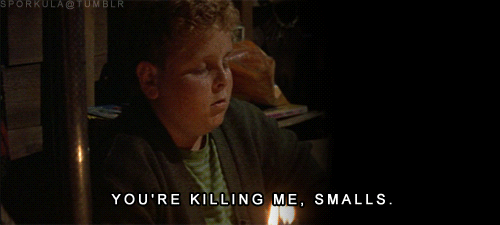I've gotten feedback, time and time again, that my beginnings have too much detail. And it wasn't until this morning that I figured out why.
When I submitted my first novel to query, I got the same feedback over and over--people would say, "I don't know who you character is and I don't know what she wants." So in the time since, I've been fighting to explain this by including ALL THE THINGS on the first page to let the reader know, "SEE?! THIS IS MY CHARACTER, THIS IS HER WORLD, THIS IS WHAT SHE WANTS."
Cue above meme.
So, here's what I've learned. I don't have to overcompensate based on the feedback I receive. It's okay to entice the reader, and let them pull more of the weight.
Someone who does this well is Lindsey Klingele. Her book, THE MARKED GIRL, is not only an amazing read, but the pacing is spot on, especially in the beginning. She gives you just enough detail to want to read on--and the world she creates is amazing.
And, in general, overcompensation is a bad idea anyway. Chances are, things will evolve the way they're meant to, no matter whether you try and contort yourself into a pretzel in the process. And it's too much pain and effort to try to bend yourself that way anyway. All it does is cause exhaustion, and the energy you spent doing it can be much better spent in other places (like karate chopping those book sections you don't need).
It's hard to part with words and sections you've worked hard on, I know. But here's my solution: I have an ordinary Word document that I call my "scrap" file. Any words or turns of phrases that I have to cut go in there.
But here's what surprised me. I only go back to this document 5% of the time. Maybe. And some of these documents are so long they might be considered novels themselves.
So, take heart. Use the feedback that works for you, but don't let it paralyze your process. Keep going. Keep moving forward. Or as Dori says, "Just keep swimming!"
 |
| Just...keep...swimming! (Image courtesy of fandomloveer on Tumblr) |


No comments:
Post a Comment